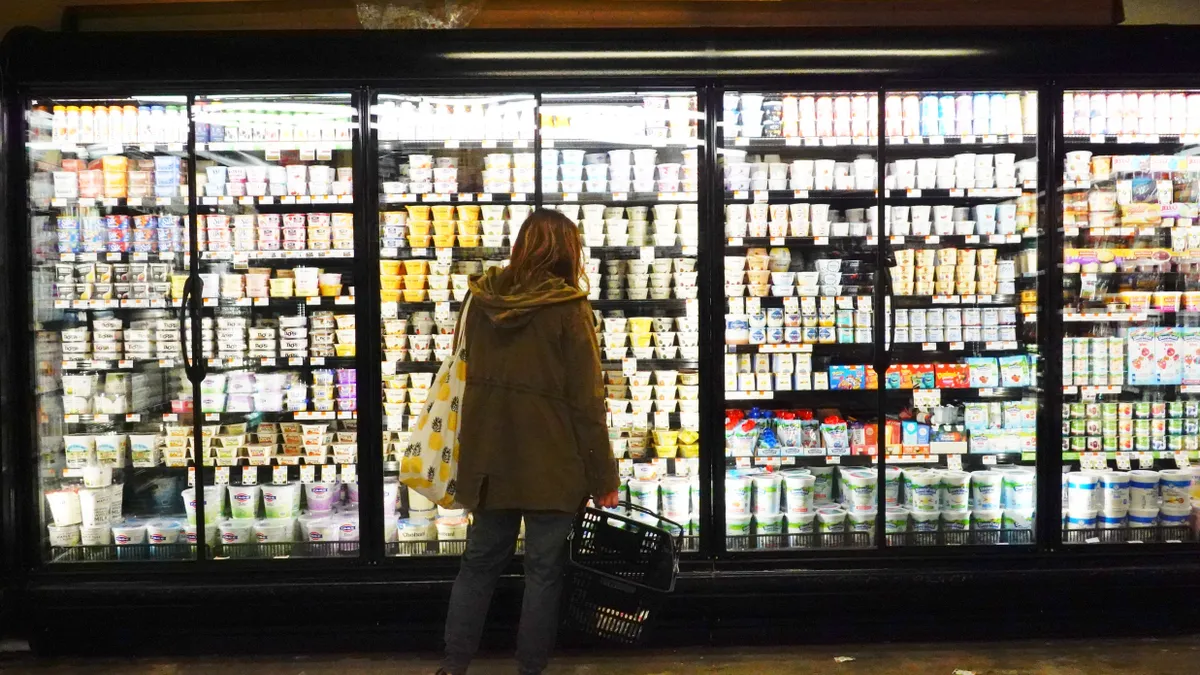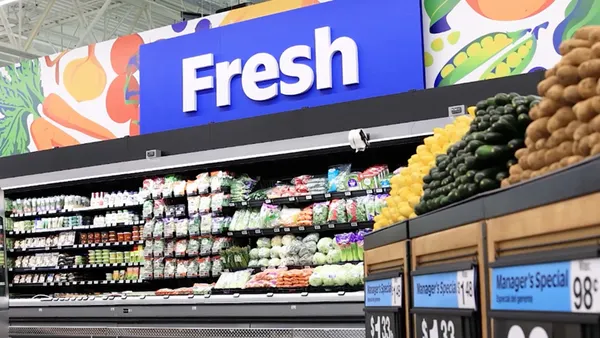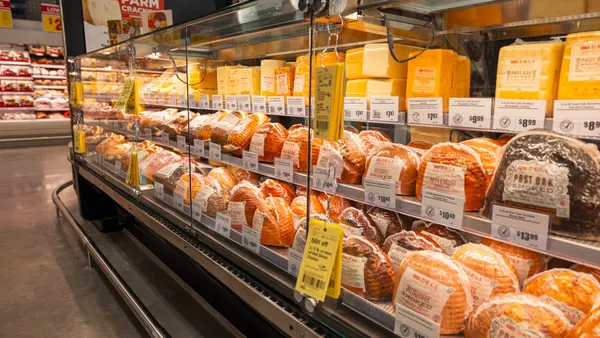Dive Brief:
- Rising grocery prices are having a notable impact on the majority of people ages 50 to 80 in the U.S., with those who are less healthy, have limited formal education or live in lower-income households affected particularly hard, according to survey data published this week by the University of Michigan Institute for Healthcare Policy & Innovation.
- Overall, 37% of respondents to the university’s National Poll on Healthy Aging said rising food costs impact them “a lot.” Respondents who rated their mental health (54%) or physical health (46%) as fair or poor reported that they are eating less healthily due to inflation.
- The findings come as food-at-home prices have continued to increase at a double-digit pace even as overall inflation has shown signs of slowing.
Dive Insight:
The survey of 2,163 people ages 50-80, conducted in late July, makes clear that grocery inflation has emerged as a key worry for older consumers across the board, with 75% of participants reporting that rising food costs have affected them “somewhat” or “a lot.”
In addition, the data suggests that people’s ability to weather higher prices at the supermarket improves as their age increases. Forty-one percent of people in their 50s and early 60s reported that increasing grocery prices have impacted them “a lot,” but just 30% of those in the 65-80 age group said they felt that way.
In addition, while 36% of survey participants between 50 and 64 said their diet has become less healthy because grocery costs are going up, only 24% of respondents in the 65-80 age group provided that assessment.
The data underscores the disproportionate impact rising grocery prices are having on vulnerable populations. Forty-eight percent of survey respondents with no more than a high school education and 56% of those with a household income of less than $30,000 said they have been affected “a lot” by food inflation.
The findings paint an especially stark link between the extent to which food prices crimp people’s finances and how well they eat — and shine a spotlight on the insidious relationship between grocery inflation and health. Survey participants who had experienced food insecurity during the past year — a period during which grocery inflation has steadily increased — were three times as likely to report eating a less healthy diet because of affordability issues than respondents who had not encountered difficulty purchasing food.
There also appears to be a connection between people’s eating habits and the way they perceive grocery inflation.
Forty percent of respondents who indicated that they do not consume enough fruits and vegetables said they are eating less healthily because of rising prices. By comparison, slightly more than a quarter of participants who reported that their consumption of those foods is sufficient said they have a less nutritious diet because groceries have become more expensive.














